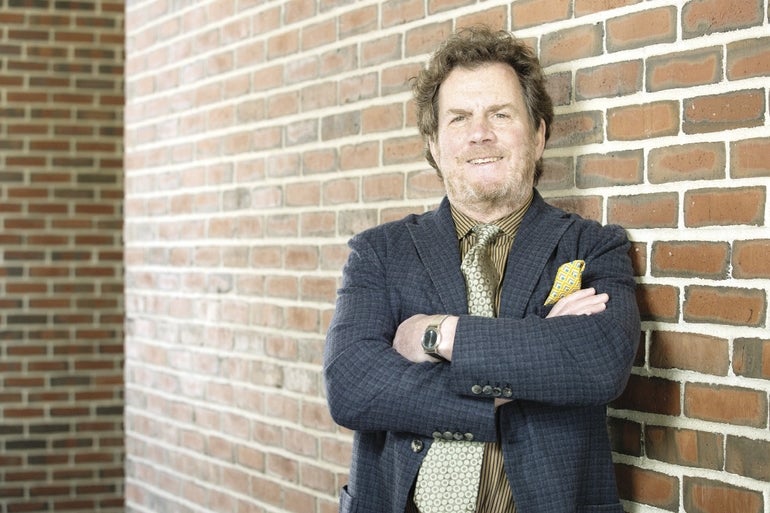Thanks to a 14% growth in population over the last decade, Worcester has begun attracting a flurry of ambitious developers, mostly from the east, who are looking to be a part of the city’s evolution.
This growing interest in Worcester has resulted in a wide range of commercial, residential, and mixed-use developments, as rents are now high enough to fund renovation and new construction projects.
At WBJ’s second Worcester Emerging forum, four of the region’s most active developers discussed why Worcester is growing the way it is, and how it can sustain that growth.
“There’s a lot more competition than there used to be,” said Russ Haims, president of real estate development agency Hampton Properties, LLC. Haims has been buying in the Worcester market since 1987, when there were very few people buying multi-family properties in the area.
Haims bought the majority of Becker College’s campus in Worcester after the school closed in 2021 and is refurbishing the former academic buildings into mostly single-family homes.
The intensifying need for housing in Worcester is on the mind of most local developers.
“There’s still a lot of growth potential still for downtown. There’s a huge demand for housing at all income levels throughout Worcester, but particularly downtown,” said Michael Lozano, vice president of development at Trinity Financial, the Boston-based firm responsible for the Courthouse Lofts, which is a mixed-income housing development.
Rental vacancy rates in Worcester reached all-time lows in the last two years, and the price of single-family homes have skyrocketed. The city has begun attracting tenants who work in MetroWest suburbs like Marlborough and Framingham, Lozano said.
“If you work around 495 you might choose to live in downtown Worcester rather than live in the suburbs, even though you work in the suburbs, which I think is a relatively new trend for Worcester,” he said.
Developers remain focused on downtown Worcester, both to provide more housing to an area of need, and to fuel greater economic growth.
“The residential density really needs to be developed further downtown [because] that really leads the commercial tenants into these areas,” said Mark Rengel, vice president of development at The Menkiti Group.

The Menkiti Group is newer to Worcester than Haims; it was originally solely based in Washington, D.C., but expanded into Worcester due to owner Bo Menkiti’s father, who had roots here. The firm focuses on revitalizing abandoned or underutilized properties, like its most recent project, Chatham Lofts, which comprises 24 luxury apartments in an historic six-story building.
The vision for downtown Worcester is an 18-hour environment, in which people work, live, and spend leisure dollars, all in one place, Rengel said.
To ensure this vision, Worcester must attract commercial tenants as well as residential, which historically has been a challenge when competing with Boston. According to Chip Norton, managing director of Wellesley-based Franklin Realty Advisors, that’s changing.
For commercial space, Worcester is a cheaper option than Boston, but compared with some MetroWest cities, like Marlborough, office rents are actually lower than in Worcester, Norton said. Still, companies are coming.
“Companies are coming here even knowing that they may pay a little more in rent than where they currently exist. That’s a good sign. That means they’re moving for other reasons than economic,” Norton said.
Norton has historically stuck with commercial developments, but proposed a mixed-use project earlier in March which would add 150 housing units downtown.
Looking toward the future, all four developers stressed the importance of maintaining a strong relationship with city leadership, especially as City Manager Edward Augustus is stepping down.
“The city’s always been pro-development,” Norton said. “That’s one of the reasons I’ve developed in Worcester for 30+ years. It’s a city and a market where you can work with the city and the administration to get these projects up and going.”

